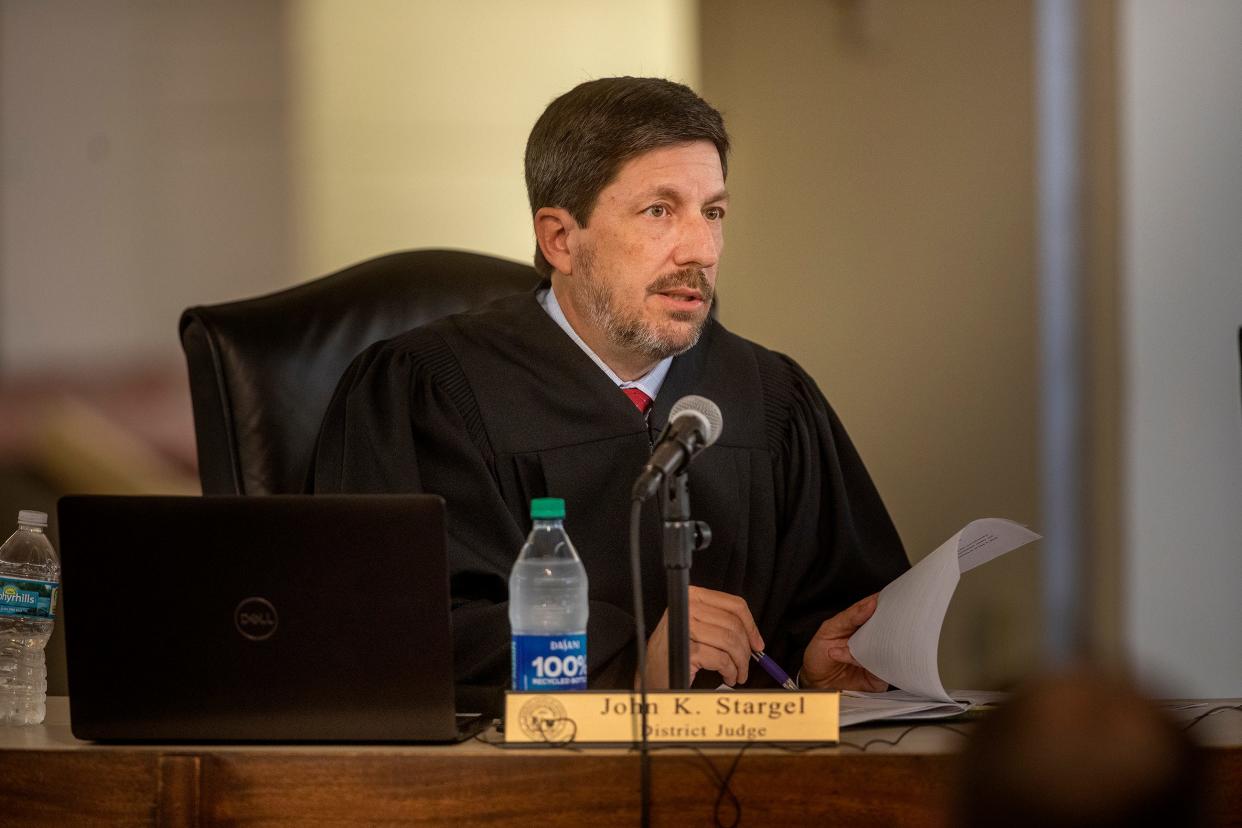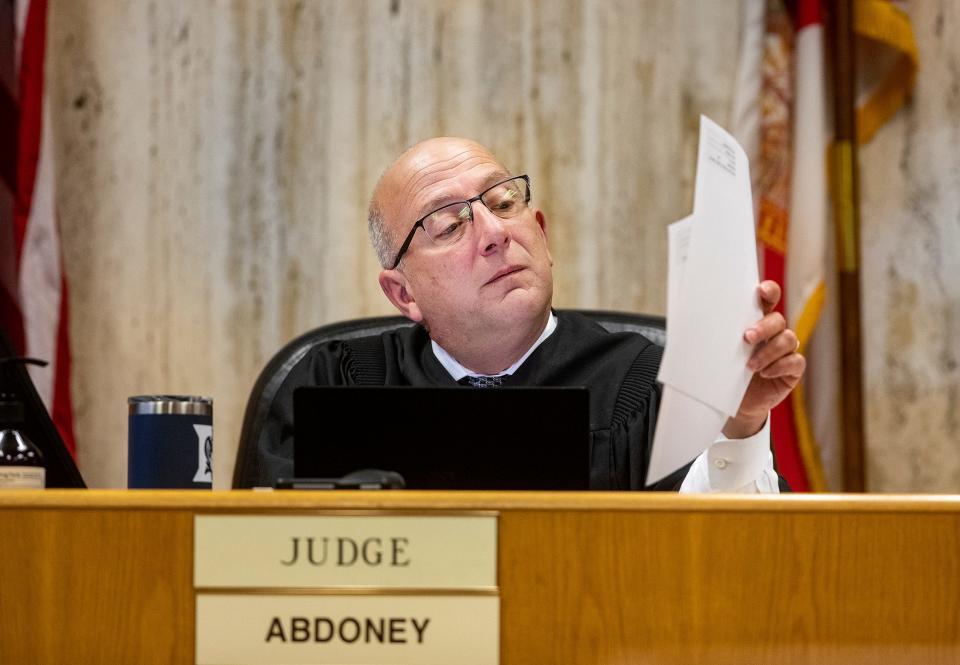6th DCA upholds 8-4 death penalty votes, even for crimes that occurred before law change

- Oops!Something went wrong.Please try again later.
The 6th District Court of Appeal in Lakeland denied an appeal Friday in a Polk County death penalty case asking the court to rule that only a unanimous jury can recommend a death sentence for a crime that occurred before Florida's law changed..
Currently under Florida law, a jury recommendation for the death penalty requires only an 8-4 majority, contrary to previous Florida law mandating a unanimous recommendation. The change in law was passed by the Florida Legislature in 2023 and signed by Gov. Ron DeSantis after three of 12 jurors refused to vote for a death sentence for Nikolas Cruz, who killed 17 people at Margory Stoneman Douglas High School in Parkland in 2018.
But it's met challenges in state and federal courts. Defense attorneys in Polk County and elsewhere have argued the Constitution's ex post facto clause requires a unanimous jury recommendation in cases where the crimes occurred before the law changed. The clause prevents the state from retroactively changing the consequences for a defendant's actions.
The 6th DCA's ruling Friday applied to the death penalty case of Angel Lobato. He and his brother, Jo Lobato, are accused of killing Danne Frasier in 2020 and dumping his body near a citrus grove in Lake Wales. Jo Lobato went on trial in April, but it ended in a mistrial over an evidentiary issue while Lobato was on the witness stand.
Some legal confusion
There's been some legal tussling over the application of the law in state courts.
Last year in the case of Bryan Riley, accused of killing four members of a North Lakeland family in a predawn home invasion in 2021, 10th Circuit Judge J. Kevin Abdoney ruled that the jury would need to be unanimous in its recommendation of the death penalty, citing the ex post facto clause.
After that ruling in the Riley case, the 5th DCA in Daytona Beach upheld the 8-4 threshold in Florida vs. Victorino.
In January, citing the 5th DCA's decision, Abdoney ruled that the 8-4 threshold would apply in the death penalty case of Marcelle Jerrill Waldon.

Waldon was convicted on Jan. 31 of killing former City Commissioner Edie Yates Henderson and her husband, David Henderson in their Lake Morton home in November 2020. Six days later, the jury voted 11-1 to recommend the death penalty.
On learning of the DCA decision, Waldon’s attorney pointed to another court decision that is certain to be debated in August at Waldon's Spencer Hearing, which is the last chance for his defense to offer mitigating circumstances that could convince a judge to spare his life.
According to defense attorney Debra Tuomey, there is a Tampa judge’s order from April in another capital case that cited an existing state law that says new criminal statutes can only be imposed “prospectively.”
In granting the order, 13th Circuit Judge Mark D. Kiser wrote, the existing law “... prohibits the amendment of a criminal statute from affecting an ongoing prosecution, the Court finds Defendant is entitled to the relief he seeks.”
As the newest appeals court in Florida, 6th DCA judges were all appointed by DeSantis. Mary Alice Nardella wrote the opinion in the Lobato appeal with Judges John K. Stargel confirming and Keith F. White dissenting.
According to the Death Penalty Information Center website, Florida became the state with the lowest threshold for juries to recommend death sentences. Alabama is next with a 10-2 decision needed.
Florida also is the state with the highest number of exonerations in the country at 30, the DPLC said. Most exonerations were of convicts sent to death row by non-unanimous juries.
This article originally appeared on The Ledger: 6th DCA decision keeps death penalty jury recommendations at 8-4

